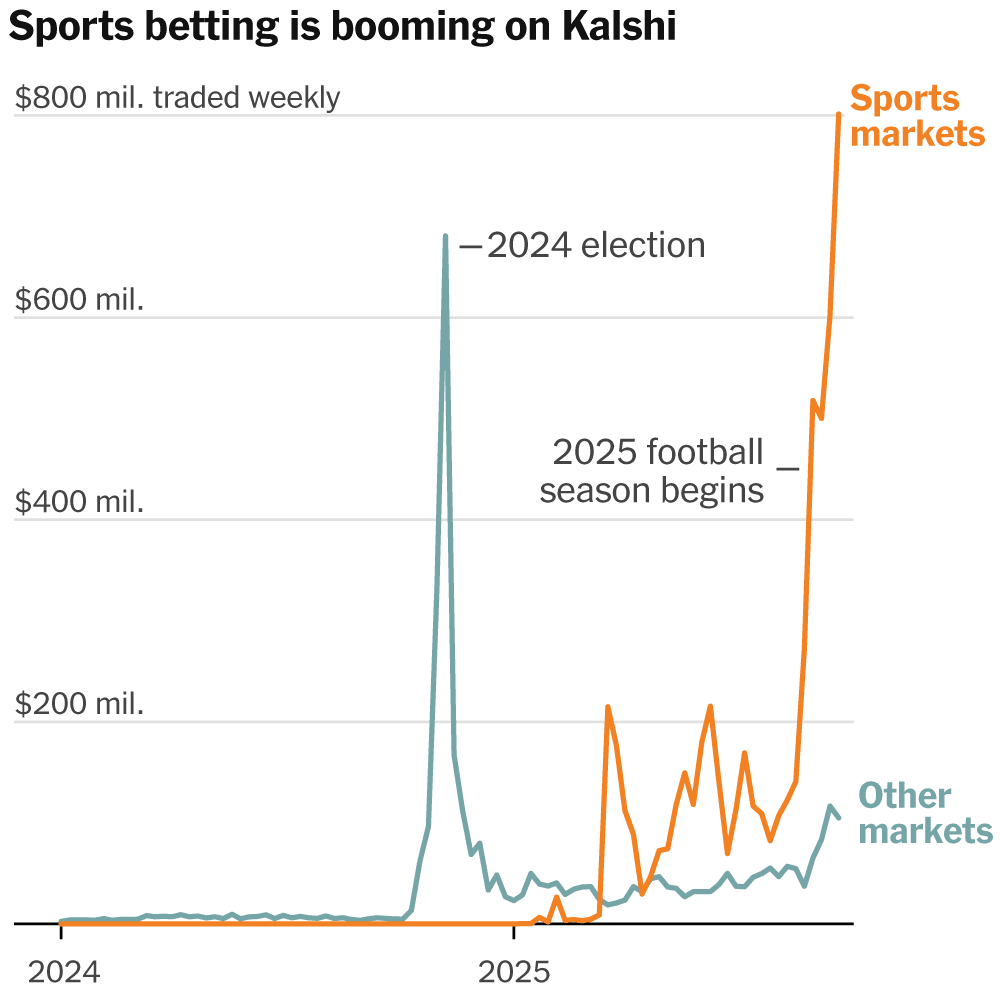Prediction markets Kalshi and Polymarket are gaining on traditional sportsbooks like DraftKings and FanDuel, leveraging a different regulatory framework to offer nationwide betting and rattling Wall Street investors.

October 8, 2025

Source:
TechCrunch
New Platforms Disrupt Sports Betting
Wall Street is betting against industry giants like DraftKings and FanDuel as new prediction market platforms, led by Kalshi and Polymarket, emerge as serious competitors. Some analysts are now warning of a potential existential threat to the established sportsbook industry.
These platforms allow users to wager on the outcomes of sports and other events, but they operate under a completely different model.
A Different Playing Field
Kalshi has positioned itself as a federally regulated financial exchange, with its contracts overseen by the Commodity Futures Trading Commission (CFTC). This classification sets it apart from state-regulated sportsbooks.
Polymarket, which operates on blockchain technology, recently re-entered the U.S. market by acquiring a CFTC-regulated exchange, according to a report from ESPN.
Nationwide Reach vs. State Limits
The key points of disruption are clear:
Nationwide Access: Kalshi claims its platform is available nationwide, bypassing the state-by-state licensing that restricts operators like DraftKings and FanDuel.
Rapid Growth: Kalshi reported over $1 billion traded in sports contracts in just five months, with a user base of approximately two million.
High-Profile Investors: Both platforms have attracted prominent investors, including Donald Trump Jr. and NFL star Saquon Barkley, signaling growing confidence in their model.
Keep up with the story. Subscribe to the PR+ free daily newsletter

Source:
MarketWatch
Regulatory and Legal Showdowns
The rapid growth of prediction markets has ignited a fierce regulatory battle between federal agencies and state authorities, creating significant legal uncertainty.
Federal Oversight vs. State Rules
State regulators argue that prediction market contracts are identical to sports bets and should be subject to local licensing and taxes. However, Kalshi maintains that as a CFTC-regulated entity, it is exempt from these state-level requirements. This clash is now playing out in court.
Kalshi's Legal Offensive
Kalshi has received cease-and-desist letters in multiple states. In response, the company is suing states like Ohio, arguing that local demands for compliance create "extraordinary legal risk" and unlawfully interfere with its federally overseen business. Details of these legal challenges were outlined by Legal Sports Report.
Polymarket's Path to Compliance
Polymarket's journey has also been rocky. The platform previously faced an FBI raid for unauthorized operations in the U.S. before it strategically acquired QCEX, a CFTC-regulated exchange, to legitimize its return to the market.
Read More

Source:
The New York Times
Share this news:




















